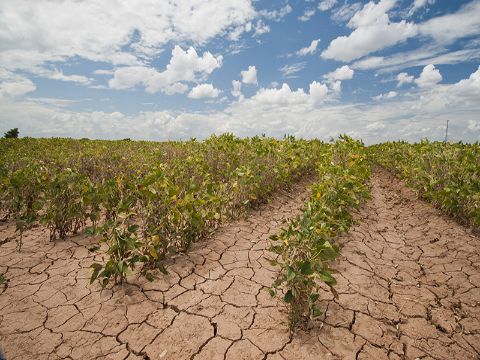The Kano state government says it is working in partnership with the United Nations Children’s Fund (UNICEF), to draft a final climate change policy document and development implementation plan.
The Commissioner for Environment, Nasiru Garo, said this at a stakeholders’ engagement on Tuesday in Kano.
He said the measure was a critical step towards confronting the existential threat posed by climate change.
According to him, the validation of the draft Kano State Climate Change Policy marks a pivotal moment in the pursuit of sustainable development and climate resilience in the state and the sub-region.
“The realities of climate change are no longer distant or abstract across the Sahel and northern Nigeria.
“Frequent droughts that threaten agricultural productivity causing food insecurity and unpredictable rainfall patterns that disrupt the planting season.
”Desertification encroaching on fertile lands and forcing communities to migrate, heatwave and flooding, leading to severe health risks, displacement and destruction of infrastructure,” he said.
He warned that if left unaddressed, its impact would not only undermine livelihoods and economic progress but worsen poverty, increase conflicts over natural resources and strain the social systems.
The commissioner highlighted that the policy would serve as a guiding framework to stimulate concrete action to protect the environment and secure the future of the state.
UNICEF WASH Programme Officer, Kano Field Office, Stella Terver, reiterated the commitment of the UN agency to partner with the Kano government in tackling the impact of climate change on children and promote their wellbeing.
Terver emphasised the organisation’s mission, to ensure that children not only survive but also thrive and realise their rights.
She called for the implementation of specific policies within Nigeria’s climate plans, to address the vulnerabilities, urging for a collective commitment to foster a safer, healthier environment for children.
According to her, UNICEF has been supporting the Kano government through viable interventions, adding that the organisation stands for children.
“Each time we talk about climate change, we talk about how does it impact on the children in Kano state.
“All we do is targeted at children, be it WASH, education, health, policy, child protection, all of them are targeted at that one child,” she said.
Also speaking, the Executive Secretary, of Kano Watershed, Erosion and Climate Change Management Agency (KN-WECCMA), Dr Muhammad Khalil restated their commitment towards building a climate resilient environment.
He pledged to ensure sustainable development and promote the wellbeing of the citizens, saying that the process adopted in developing the Kano Climate Change Policy, involved engagements with various stakeholders.
Khalil said the engagement was to generate inputs from all sections of society that could impacted by climate change.
On his part, the Chairman, of the Kano State House of Assembly Committee on Environment, Musa Kachako, expressed satisfaction with the stakeholder’s engagement and policy-making processes.
“The occasion is to address the issues bothering people for long, not only in Kano or Nigeria but worldwide.
“Environment plays a vital role in people’s health, what they eat and the issue of climate change. If addressed, it will assist ordinary people and not only farmers.”
NAN


